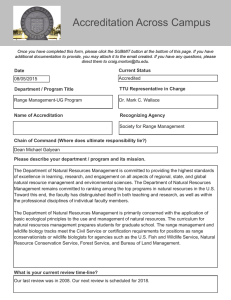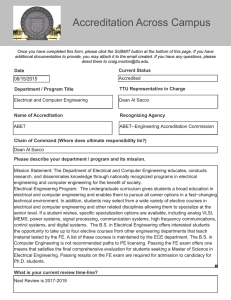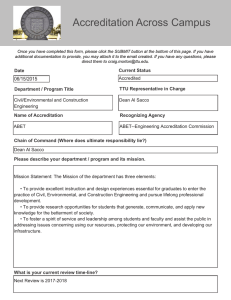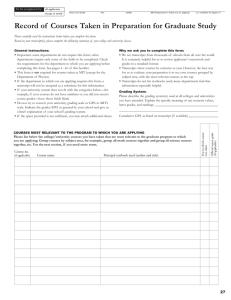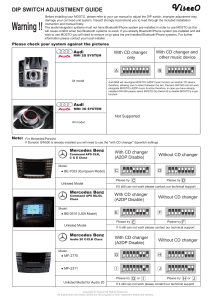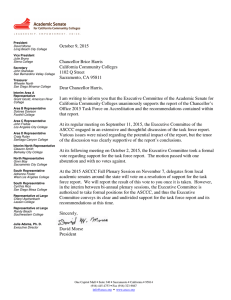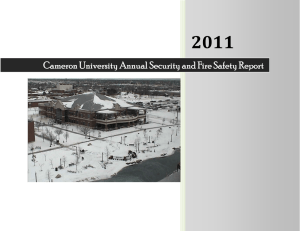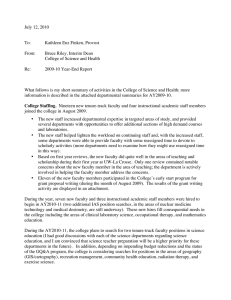Accreditation Across Campus
advertisement
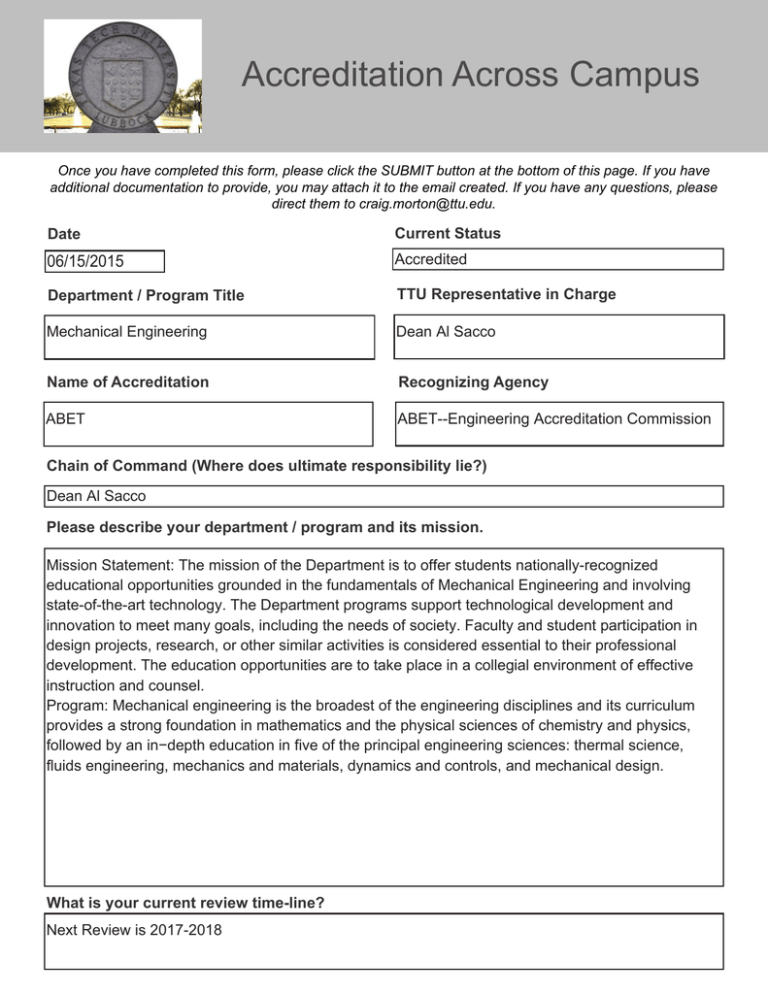
Accreditation Across Campus 2QFH\RXKDYHFRPSOHWHGWKLVIRUPSOHDVHFOLFNWKH68%0,7EXWWRQDWWKHERWWRPRIWKLVSDJH,I\RXKDYH DGGLWLRQDOGRFXPHQWDWLRQWRSURYLGH\RXPD\DWWDFKLWWRWKHHPDLOFUHDWHG,I\RXKDYHDQ\TXHVWLRQVSOHDVH GLUHFWWKHPWRFUDLJPRUWRQ#WWXHGX Date Current SWDWXV 06/15/2015 Accredited Department / Program Title TTU Representative in Charge Mechanical Engineering Dean Al Sacco Name of Accreditation Recognizing Agency ABET ABET--Engineering Accreditation Commission Chain of Command (Where does ultimate responsibility lie?) Dean Al Sacco Please describe your department / program and its mission. Mission Statement: The mission of the Department is to offer students nationally-recognized educational opportunities grounded in the fundamentals of Mechanical Engineering and involving state-of-the-art technology. The Department programs support technological development and innovation to meet many goals, including the needs of society. Faculty and student participation in design projects, research, or other similar activities is considered essential to their professional development. The education opportunities are to take place in a collegial environment of effective instruction and counsel. Program: Mechanical engineering is the broadest of the engineering disciplines and its curriculum provides a strong foundation in mathematics and the physical sciences of chemistry and physics, followed by an inídepth education in five of the principal engineering sciences: thermal science, fluids engineering, mechanics and materials, dynamics and controls, and mechanical design. What is your current review time-line? Next Review is 2017-2018 Additional notes regarding current standing: The program in mechanical engineering provides students the ability to apply their engineering, mathematics, and science knowledge to design mechanical systems and to solve engineering problems. Students learn to design and conduct experiments, to communicate effectively, to function in teams, and to utilize modern engineering tools. Students gain an understanding of their professional and ethical responsibilities as engineers. Perhaps most important, students are prepared for the lifelong learning necessary to function effectively as the practice of engineering evolves. Graduates with a degree in mechanical engineering will find employment opportunities covering a wide spectrum, including the aerospace, automotive, petroleum production, and refining industries, petrochemicals, electrical power, electronics, semiconductors, computers, manufacturing, and production, as well as research positions in industry and government laboratories. Problemísolving techniques learned in the mechanical engineering curriculum are also applied to continued educational pursuits or graduate study in engineering, as well as in areas such as law, medicine, business administration, and other professions. Explanation for not pursXing accreditation: Submit by Email Note: If the "Submit by Email" function does not work, save to a PDF file and email file to Craig Morton at craig.morton@ttu.edu
